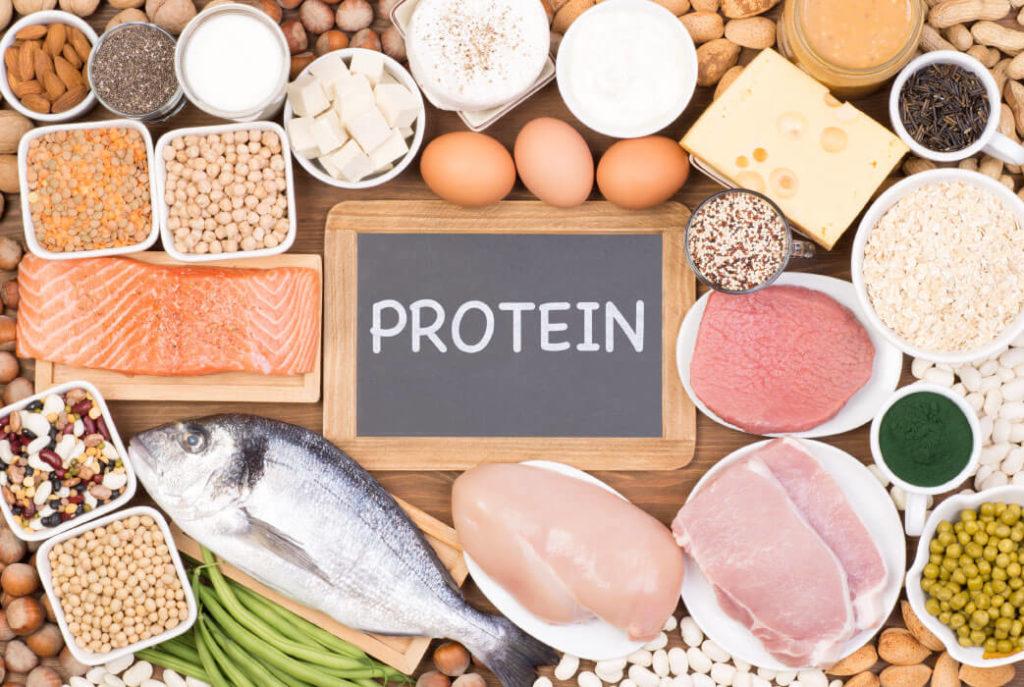In the ever-evolving landscape of nutrition, high-protein diets have emerged as a popular contender, promising everything from muscle gain to weight loss. But beneath the allure of sizzling steaks and protein-packed shakes lies a crucial question: Are high-protein diets safe for everyone? As we delve into this dietary debate, it’s essential to navigate the intricate web of scientific studies, personal anecdotes, and expert opinions. This article aims to unravel the complexities surrounding high-protein diets, exploring their potential benefits and risks, and ultimately seeking to answer whether this dietary trend is a universal solution or a tailored approach best left to individual discretion.
Understanding the Science Behind Protein Consumption
Proteins are the building blocks of life, playing a crucial role in repairing tissues, supporting immune function, and producing enzymes and hormones. But how much protein does the body really need? This largely depends on factors such as age, gender, activity level, and overall health. For instance, athletes and those engaging in regular strength training may require more protein to support muscle recovery and growth, whereas a sedentary individual might need less.
When considering a high-protein diet, it’s essential to understand both the benefits and potential risks. Some benefits include:
- Increased muscle mass and strength
- Improved satiety and weight management
- Enhanced metabolic rate
However, excessive protein intake can lead to issues such as kidney strain, dehydration, and imbalanced nutrient intake. It’s important to strike a balance and ensure protein sources are varied and nutrient-rich. Opt for lean meats, fish, legumes, and dairy to diversify your protein sources while maintaining overall health.

Exploring the Benefits and Risks of High-Protein Diets
The allure of high-protein diets lies in their promise of muscle gain, weight loss, and increased satiety. Such diets are often favored by athletes, bodybuilders, and those seeking to shed a few pounds. Proteins are the building blocks of the body, essential for repairing tissues, producing enzymes, and supporting immune function. A diet rich in protein can offer several advantages, including:
- Improved muscle mass – Supporting muscle repair and growth, especially when combined with resistance training.
- Weight management - Enhancing feelings of fullness, which may lead to reduced calorie intake.
- Metabolic boost - Increasing the thermic effect of food, meaning more calories are burned during digestion.
However, these benefits come with potential risks that should not be overlooked. Excessive protein intake may lead to health issues, such as kidney strain, especially in individuals with pre-existing kidney conditions. Additionally, high-protein diets may result in nutrient imbalances if they lead to the exclusion of essential food groups. It’s crucial to consider personal health conditions and consult with a healthcare professional before embarking on a protein-rich dietary regimen.

Tailoring Protein Intake to Individual Health Needs
Understanding how much protein one should consume isn’t a one-size-fits-all solution. Each individual has unique health needs that can be influenced by factors such as age, activity level, and underlying health conditions. Here are some considerations for tailoring protein intake:
- Age and Activity Level: As we age, our protein requirements may change. Active individuals, particularly athletes, often require more protein to support muscle repair and growth.
- Medical Conditions: Conditions like kidney disease or liver disorders may necessitate a reduction in protein intake to prevent additional strain on these organs.
- Dietary Preferences and Restrictions: Vegetarians and vegans need to ensure they’re getting enough complete proteins, which may require combining different plant-based sources.
- Weight Management Goals: High-protein diets can be beneficial for weight loss by promoting satiety, but it’s essential to balance protein with other nutrients for overall health.
By considering these factors, individuals can better align their protein intake with their health objectives, ensuring they meet their body’s unique demands while maintaining a balanced diet.

Expert Recommendations for Safe Protein Consumption
When considering a high-protein diet, it’s essential to approach it with informed caution. Experts suggest tailoring your protein intake to your individual needs, as factors such as age, activity level, and health conditions can significantly influence what is considered safe and beneficial. It’s important to understand that not all proteins are created equal, and integrating a variety of protein sources can help maintain a balanced diet. Plant-based proteins, lean meats, and dairy are excellent options that can offer diverse nutritional benefits.
- Consult a healthcare provider: Before making significant changes to your diet, it’s crucial to seek personalized advice.
- Monitor your kidney health: High-protein diets can put extra strain on the kidneys, especially in individuals with pre-existing conditions.
- Balance your macronutrients: Ensure you’re not neglecting other essential nutrients such as carbohydrates and fats.
- Stay hydrated: Increased protein intake can lead to dehydration, so maintaining adequate fluid levels is vital.
By taking these expert recommendations into account, you can make more informed decisions about your protein consumption, optimizing your health and wellness without compromising safety.
